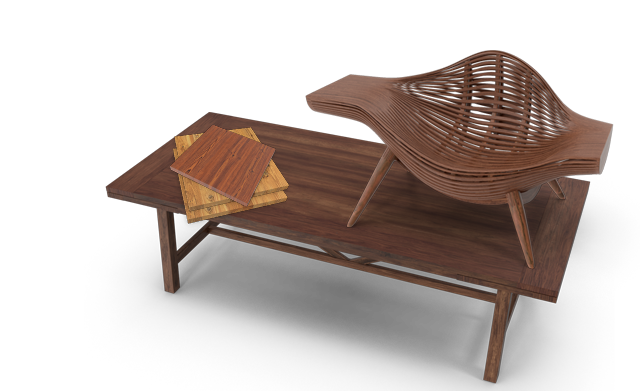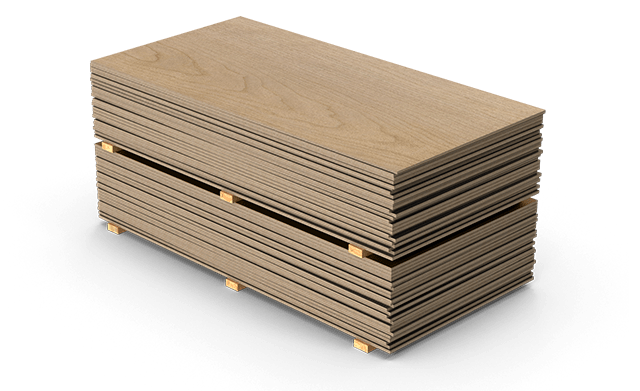Find the right product for your woodworking
With the AWUKO Abrasives product range, you cover all needs for the surface treatment of solid wood, solid materials, wood materials, furniture and interior design, kitchen and shop construction, restoration and renovation as well as all paint and varnishing work for painting handicraft companies.
CUMI AWUKO Abrasives GmbH
Tips for choosing the right abrasive for your company?
Regardless of whether you want coarse grinding, profile grinding, calibration, grinding, deburring, intermediate grinding, fine grinding, final grinding or polishing, Awuko has the right grinding product in the right grit for you. A brand for all types of wood.

Hard and soft woods
Tree species such as beech, oak, maple, ramin, birch, cherry and walnut form a very tight vascular structure due to their slow growth rate. The fiber structure of these tree species is thus closely networked. The processing of these types of wood proves to be more arduous.
There are also other natural properties of some types of wood that can make processing difficult. For example, certain types of wood can contain resins such as hard resins (Resinas) and soft resins (balsams) or oils to protect against natural predators. Resins and oils add a lot to the abrasive materials when wood is processed. Resin-rich tree species are particularly fast-growing tree species, such as conifers. The structure of the wooden vessels in these softwoods is mostly open-pored and fibrous. In addition to these properties, these types of wood are lighter in color and have resin channels in the wood core, which end in so-called resin gaps on the bark. The expert understands soft woods as the following types of wood: red spruce (Picea abies), durian, Oregon pine (Pseudotsuga menziesii), larch, pine, Asian oak, Iroko, Douglas fir, teak. The open-pore growth structure requires other abrasives, such as hardwoods. Due to the quick and easy processing and for reasons of cost, the wood types fir, spruce, pine and yew are used for interior and furniture construction.

Processing of wood-based panels
For plywood. Especially for calibrating and sanding out scratches as well as for fine sanding prior to lacquering.
For particle boards. Especially for calibrating and sanding out scratches as well as for fine sanding prior to lacquering.
For MDF. For calibrating panels prior to application of paint, fine sanding before lacquering or profiled edges.
Also suitable for particle boards, HDF boards, OSB panels, blockboards, glued wood panels, switch panels, synthetic resin panels, laminates and mineral boards.
For more information, see Wood-based panels
For classic and very hard solid surface materials
Working with polymer-bound mineral materials (known as "solid surfaces") is widespread in carpentry and has become increasingly popular, especially in recent years. The variety of materials has also increased due to new suppliers, a wider range of colors and innovative new technical features. Thanks to the fact that they have a non-porous surface, are insensitive to moisture and are food-safe, polymers are mainly used in bathroom, kitchen, office, clinic and shop furnishings and look like marble or granite. However, depending on their workability (hardness), the condition in which they are delivered, and the customer's requirements for the end product (surface gloss), these materials can cause major problems for the worker. We offer the perfect system for processing classic materials for solid surfaces such as AWUKO SU22SY Panel Express, AWUKO - SP40F antistatic and for very hard materials for solid surfaces such as marble and granite.
Wood and paint applications
A basic distinction is made between two types of coating: lacquers or glazes. The difference is that varnishes form a closed, covering layer on the wood. The structure of the wood is no longer visible after a colored coating. A wood protection glaze, however, penetrates the wood and protects it from the inside. A glaze layer maintains the structure of the wood surface and feels harsher to the touch. The "wood look" of the surface is retained due to the transparent property of the glaze layer.
AWUKO Abrasives offers abrasive materials for all common lacquer and glaze applications. Depending on the work steps, such as intermediate sanding, sanding off paint defects, whether for manual sanding applications, sanding with portable machines or with stationary large sanding machines, AWUKO has the right abrasive for your paint and glaze application.
You can find more information under veneer and lacquer sanding